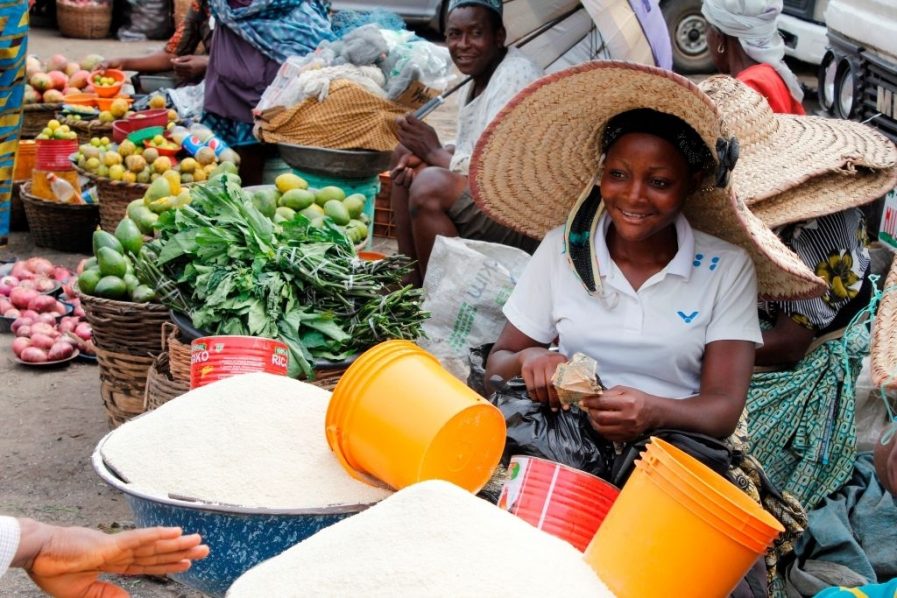
Cost of locally produced bread, noodles, confectionaries, semovita, semolina, beverages and other related products in the wheat value chain are set to experience an increase in the coming months, going by insights from the market.
Just last month, Russia announced that it was ending its participation in an agreement that had allowed Ukraine to export its grain by sea. The agreement, known as the Black Sea Grain Initiative, was brokered by the United Nations and Turkey in July 2022. Russia had repeatedly complained about the agreement, which it considered one-sided in Ukraine’s favour, also argued that Western sanctions have restricted the sale of its agricultural products and refused to renew it last month.
On this development, the Head of the World Trade Organisation (WTO), Dr. Ngozi Okonjo Iweala, expressed “deep disappointment at the termination of the Black Sea Grain Initiative and the interruption of the grain trade from Ukraine. Black Sea trade in food, feed and fertiliser is critical to the stability of global food prices and it is sad to say that poor people and poor countries are going to be the hardest hit.”
The global trade body has urged for renewal but has remained unsuccessful so far.
Nigeria imports cheap wheat (durum wheat) from Russia and Ukraine and with exports almost non-existent, local manufacturers are set to experience shortage.
Local wheat production meets an insignificant portion of wheat consumption demand and over 50 per cent is accessed from imports. Overall demand is significantly met through imports, which were estimated at $2.1 billion in 2020, $2.5 billion in 2021 and almost $3 billion last year.
With the country’s wheat milling capacity at more than 8.2 million metric tonnes (MMT), Nigeria is the fifth largest U.S. wheat importer in the world. Bread, semolina, and pasta are staples in Nigeria and will be most affected. Currently, the share of the total wheat consumption market in Nigeria is dominated by bread (65 per cent), followed by semolina (20 per cent) and pasta (10 per cent).
Local manufacturers in the food and beverage sector were already struggling with skyrocketing prices of raw materials, removal of fuel subsidy and eroded purchasing power among other factors. With limited access to cheaper wheat and the U.S. protection of its reserves by stopping exports, local manufacturers are in dire straits.
In a bid to tackle rising food prices, the president last week declared an immediate State of Emergency on food insecurity. He also directed that “all matters about food and water availability and affordability, as essential livelihood items, be included within the purview of the National Security Council.”
This move, according to the president, the Association of Organic Agriculture Practitioners of Nigeria (NOAN) and Lecturer, of the Department of Soil Science and Land Resources Management, University of Uyo, Jude Obi, is simply a theory, which he said is taught to second-year university students. He said FG’s plan is neither a solid nor feasible one.
According to him, every effort made over the years to reduce the wheat content of bread has failed and predicted that even though the prices of food and essentials have shot up, they are about to go up even more. “
We should have started our wheat production years ago but our problem as usual is that we never plan, so we keep having these problems. If we had set up a solid food plan on how to develop the type of wheat our soil supports, we would have had a breakthrough years ago and become self-sufficient.”
Obi, who is also the Country Coordinator of the Knowledge Centre for Organic Agriculture (KCOA) in Africa and the General Secretary, the Soil Science Society of Nigeria (SSSN), regretted that most materials for food production are still imported to date.
“We don’t even produce enough of our main staples- rice, wheat, cassava, yam and we’re not even making plans to correct this anomaly. The Anchor Borrowers’ Programme of the last administration to produce rice is not sustainable. By now, we should be talking about how to grow these items all year round and this can only be achieved by supporting small-scale farmers.
“We always politicise everything; even the former minister of agriculture is a politician. How do we make solid plans with such a person in charge? They come, play politics, say what the government wants to hear and go, leaving a critical industry to suffer. How long are we going to be affected by international politics? No country can depend on another for food import and not crumble, which is what is playing out now.”
He added that in the next two months, the cost of wheat would become impossible, coupled with the law of demand and supply and skyrocketing forex prices.
“It will not show right now because we still have a little supply but what happened to fuel will happen with wheat. We do not grow up to 20 per cent of our food needs and insecurity is worsening the situation because we can’t even grow our food. The situation is very dire,” he said.
President, All Farmers Association of Nigeria (AFAN), Kabiru Ibrahim, regretted that food inflation, which is at over 26 per cent now, is showing no signs of easing, rather would get worse in the coming months.
He said the war and Russia pulling out of the Black Sea initiative has caused serious problems for local grain farmers, adding that they might not survive this onslaught.
“Since COVID-19, things have not been the same and while we have not even recovered from that, this one came up again. This is in addition to the raging insecurity in many farming states and incessant flooding, which has devastated many as they lost all their investments. Coupled with our reducing purchasing power, most people cannot afford food to eat again.”
He said they couldn’t store much grain last year due to the above-mentioned problems but this year is worse as they have neither been able to farm nor store any grains. “We have never experienced this level of food inflation and sadly, it is not going to get better. We can’t even import as everyone has locked up supply, so we’re in trouble. We must gear up production if we still want to have anything to manufacture or eat next year. We must start year-round farming today, to prevent even worse problems next year.”
Urging the president to ensure food sufficiency, improve security and help local manufacturers source raw materials easier, he said local farmers must move from subsistence farming and look at it as a solid business as this is the only way to increase output and greatly reduce external dependency.






